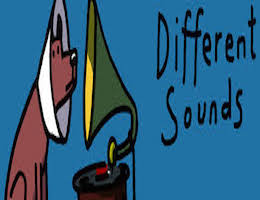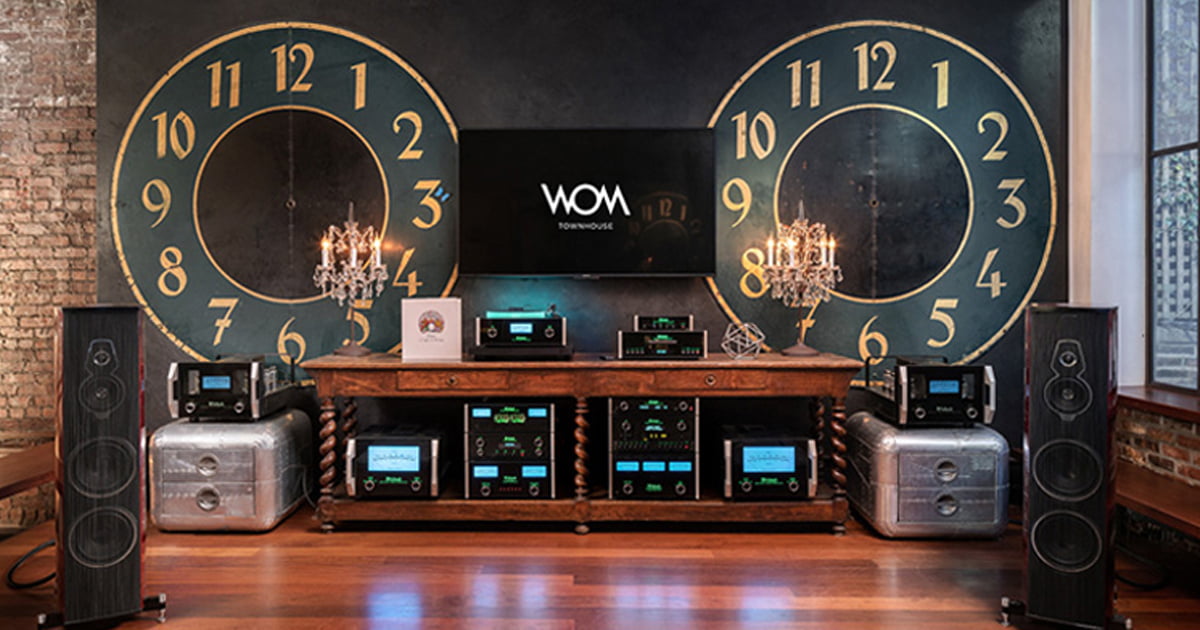It’s the time of year for saving money!
Audiophiles oftentimes tend to chase the high-end version of a utopian Holy Grail. Our ultimate definition of sonic nirvana, whether or not valid, seeks to recreate the equivalency of live music through our audio system. Utopia often proves a fickle master, and reproducing the sonic excellence that is live music remains elusive, if not altogether impossible.
 We are a compulsive, obsessive lot regarding the sonics produced by our audio systems. We try various components in an unrelenting effort to discover the sound that fills the need our ears require. Oddly enough, we may not be especially able to define the sound we seek, only that we will know when we hear it. We spend untold amounts of time and money in support of that quest. We are gleeful when we find that which we seek, conciliatory when we don’t. In the end, we settle on the particular sound that just seems to speak to our own individuality. The indefinable something finally defined.
We are a compulsive, obsessive lot regarding the sonics produced by our audio systems. We try various components in an unrelenting effort to discover the sound that fills the need our ears require. Oddly enough, we may not be especially able to define the sound we seek, only that we will know when we hear it. We spend untold amounts of time and money in support of that quest. We are gleeful when we find that which we seek, conciliatory when we don’t. In the end, we settle on the particular sound that just seems to speak to our own individuality. The indefinable something finally defined.
Last October, after a long Saturday listening to various systems at the 2014 Rocky Mountain Audio Fest, I was back in the hotel after dinner thinking about all the systems I had heard that day. Several were so sublime that my memory of them is still quite clear. Others were surprising in that I expected better. When supposed world-class components lack awe-inspiring sonics, I have to wonder — was as it the system, the setup, the room or me? Did everyone feel the same as I did? Obviously, the answer is no, they did not. Clearly there were scores of people who assuredly loved that which left me unimpressed. I’m also certain I enjoyed some systems that others found only moderately impressive, or worse. Some of the systems I heard were very forgettable — literally, which is why I can’t report on them here.
So what is it about the music we hear on an audio system that tells our brain, yes, we like these sonics or no, we don’t? Why does one audiophile champion the very sound that finds others in polar opposition? Do characteristics like imaging, frequency range and other auditory definitions define our likes and dislikes? Why do I hate Brussels sprouts and others love them?
 I tend to enjoy a large, expansive soundstage with precise imaging and layered 3D texturing. An audio dealer friend prefers more centralized imaging. Why is his preference in basic opposition to my own? Why are some audiophiles excited by prodigious amounts of low-frequency response, almost to the exclusion of mid and high frequencies, and others prefer a more balanced presentation? If none are wrong or incorrect, what determines our sonic preferences?
I tend to enjoy a large, expansive soundstage with precise imaging and layered 3D texturing. An audio dealer friend prefers more centralized imaging. Why is his preference in basic opposition to my own? Why are some audiophiles excited by prodigious amounts of low-frequency response, almost to the exclusion of mid and high frequencies, and others prefer a more balanced presentation? If none are wrong or incorrect, what determines our sonic preferences?
When I go into a big-box store and hear that ubiquitous $649, 7.1-channel surround-sound, mid-fi receiver, I shake my head and think nope, not for me. In so thinking, I would be in a minority — albeit a wide, vast minority. Mid-fi receivers outsell multi-thousand-dollar high-performance systems daily and by orders of magnitude larger sales volumes. It seems therefore obvious that those who purchase such systems find in them no fault or discontent. Yet at almost any time it is possible to find written somewhere in the audiophile community how we need to introduce luxury audio to those who are unfamiliar with our hobby. It raises the question of why we each like a certain type of sonics. And also the larger, more philosophical question: Why am I an audiophile? As with many audio questions, I don’t see a delineable answer. We like what we like. It’s just the way it is.
Differences in sonic preferences are, however, actually a good thing. When a manufacturer looks to make a product, they typically start with a specific engineering goal. Perhaps more bass control, a better midrange or any number of characteristics are desired. If, when voicing a component, some different result is also achieved, and one that offers improved sound, then all audiophiles are the fortunate recipients. Differences in how we prefer our music reproduced, while likely short of that utopian goal, are perhaps the most intriguing part of the audiophile hobby.
That we have differences on the sound that is most pleasing to our ears and brain is the well-oiled cog in the machine. It helps the industry to keep churning along. Audiophile consumers find they have new components to desire and hopefully purchase. It is one reason why this industry has survived for so long when it is arguably very expensive and popular to only a small niche of consumers.
 It keeps manufacturers building and listeners listening. It allows us to be taken away from ourselves and become lost in the joy that is music. However we prefer the sonics we hear, we can become enthralled in audio pursuit to any desired degree. We can decide through any number of means what predominately appeals to our ears and brain. When our own individual sonic nirvana is achieved, we can simply relax and enjoy what we hear until our ears and brain tell us differently. Then we start again. Such is the method to our own particular brand of madness. We do all of this to satisfy, if not create, our own definition of utopia. It’s our hobby. It’s what we like. It’s just the way it is.
It keeps manufacturers building and listeners listening. It allows us to be taken away from ourselves and become lost in the joy that is music. However we prefer the sonics we hear, we can become enthralled in audio pursuit to any desired degree. We can decide through any number of means what predominately appeals to our ears and brain. When our own individual sonic nirvana is achieved, we can simply relax and enjoy what we hear until our ears and brain tell us differently. Then we start again. Such is the method to our own particular brand of madness. We do all of this to satisfy, if not create, our own definition of utopia. It’s our hobby. It’s what we like. It’s just the way it is.
Best of all, it’s far and beyond better than Brussels sprouts.





